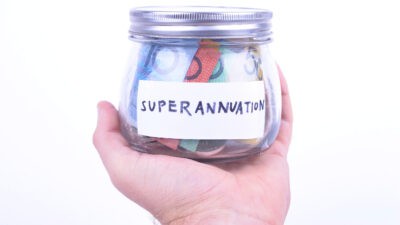
Image source: Getty Images
It was hard to miss — and the body's chief let us have it with both barrels.
It, of course, was the latest report from the UN's Intergovernmental Panel on Climate Change, and the quote heard around the world was that the report was 'code red for humanity', according to UN Secretary-General António Guterres.
And right now, some of my readers are yelling "fake news" while others are saying "Well, der.. It's not as if we didn't know we're careening toward catastrophic climate change".
The rest of us are somewhere in between.
Now, for the sake of it, let me nail my personal colours to the mast: the science is unequivocal, and we owe it to our kids and grandkids to do something about Climate Change. In the dramatically unlikely event the whole thing is a hoax, in the words of the famous cartoon, "What it it's a big hoax and we create a better world for nothing"…
But I'm not here to beat that drum.
Plenty of people can make the case far more eloquently and authoritatively than I.
And anyway, I'm an investor, not a climate scientist.
Not that such a disclaimer lets us off the hook, of course.
As the famous ice hockey player Wayne Gretzky said, he was good because he would "…skate to where the puck is going to be, not where it has been."
And that's the challenge confronting investors, when it comes to Climate Change.
Let's say it's real.
The world will get warmer, agriculture will be impacted, sea levels will rise, and governments will make rules and regulations (both here, and overseas, where imports will likely attract tariffs approximating local carbon taxes), and some assets will end up 'stranded', with businesses not allowed to extract them, or increasingly having trouble finding markets.
Let's say it's a clever hoax.
Then it depends on your view. If the planet is warming, but we're not to blame, the world still gets warmer, agriculture is impacted, sea levels will rise and so on.
If it's not warming, then none of the environmental impacts will come to pass… but governments will still pass new rules and regulations anyway, because, with a few notable exceptions, they believe the scientists.
I hope you can see the picture I'm painting here.
The world is probably changing.
And even if it's not, governments are changing the conditions under which our companies operate.
In other words, it doesn't matter what you and I think should happen.
Only what is happening — and is likely to happen.
To revert to Gretzky's example, it will impact where the 'puck' is going to be.
And again, remember that the truth or otherwise of Climate Change isn't the important thing, here.
At least not when it comes to your portfolio.
It's what governments (and increasingly consumers and investors) do in response to the threat they perceive.
I can say it's real.
You can say it's fake.
And then we both look over to the regulatory and market forces, who — completely unaware of our argument — decide what rules to put in place, what products to buy, and what happens to the reputations of the businesses involved.
And, as investors, that's the only thing that matters.
We need to see the future as it is likely to be, not as we wish it was.
And sometimes that's not easy.
Here's an example: I'm on record as saying I don't think so-called 'ethical investing' is a dial mover, in terms of its impact on changing the behaviour or decisions of companies.
(I do think consumers can have an extraordinary impact, by the way.)
And yet, I own shares in fund manager Australian Ethical Investment Limited (ASX: AEF).
Why?
Because I think, despite my scepticism, people will throw more and more money into 'ethical' investment options. And I think Australian Ethical will benefit, as a result.
That's the world as it's likely to be, not as I wish it would be.
In a similar vein, colour me sceptical on the proven health benefits of milk with only the A2 protein. Yet I own shares in A2 Milk Company Ltd (ASX: A2M). Why? Because people swear they feel better. Placebo effect or not, I think A2 Milk will sell more milk in the coming years than they do today.
I trust I've made my point.
We can waste a lot of time (and potentially forgo a lot of profit) waiting for the world to see things 'our way', instead of seeing things the way they are.
Resources investors should, I think, at least imagine a world in which some coal is left in the ground, taxes are placed on fossil fuels, and the world continues to electrify.
You're entitled to reject those predictions, of course, but just make sure it's a cool-headed analysis, rather than wishful thinking (in either direction).
Fool on!








